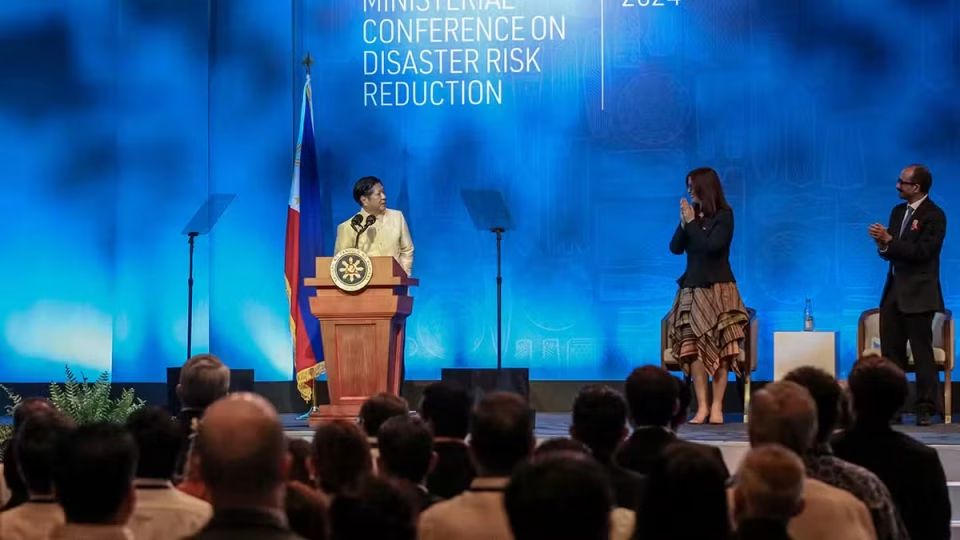October 16, 2024
MANILA – Efforts to mitigate climate change should be “inclusive” and should address the needs of the most vulnerable, given how “disasters disproportionately impact people and… exacerbate existing inequalities,” President Marcos told a high-level forum on disaster risk reduction hosted by Manila this week.
In his keynote speech on Tuesday at the weeklong Asia-Pacific Ministerial Conference on Disaster Risk Reduction, the President said climate change “necessitates forward-thinking policies that… support those displaced by disasters so they can rebuild their lives with dignity and security.”
“We must ensure that every voice is heard and every person is empowered to contribute to disaster risk reduction and receives the assistance that they need if the time comes,” he told the gathering of an estimated 4,000 delegates from 70 countries.
READ: PH a ‘lighthouse’ in disaster risk reduction, says top UN official
In the case of the Philippines, he said, the national government works closely with the local governments and other stakeholders in “address[ing] their unique challenges [while] honor[ing] their local traditions and practices.”
‘Fragile’ planning
The international conference, which began on Monday, is aimed at strengthening cooperation on disaster resilience and risk reduction in the Asia-Pacific, considered one of the world’s most disaster-prone regions.
The gathering at the Philippine International Convention Center in Pasay City is cohosted by the United Nations Office for Disaster Risk Reduction.
For Asia-Pacific nations affected by climate change, like the Philippines, “resilience and sustainability must underpin the national agenda of our economy,” the President said.
“This recognizes that all our efforts in economic planning are fragile in the face of calamities and disasters,” he noted.
“We must significantly increase our investments and develop financing mechanisms in disaster risk reduction,” Marcos said, among other recommendations he made as he urged countries in the region to “harmonize our approaches and pursue meaningful actions under these mandates to secure a sustainable and climate-resilient future.”
“Innovation must be at the heart of all our strategies. Advancements in technology, data analytics, early warning systems can revolutionize our disaster preparedness and our response,” he said.
Damage fund
The President also called for “stronger international legal frameworks” that would serve, among other purposes, to “uphold the rights and dignity of affected persons, establish clearer obligations and enhance humanitarian coordination.”
Furthermore, he noted the Philippines’ selection last July as host country for the Loss and Damage Fund, which was put in operation in 2023 by the Conference of the Parties (COP28), the United Nations Climate Change Conference that year.
Marcos said developing nations like the Philippines “are provided greater access to these resources to advance their policies and build disaster resilience.”
PH-Malaysia cooperation
Meanwhile, the Philippines and Malaysia are eyeing stronger cooperation in boosting disaster resilience and strengthening the workforce.
Earlier on Monday, Marcos met with Ahmad Zahid Bin Hamidi, Malaysia’s deputy prime minister for rural and regional development, in Malacañang. Hamidi is also a participant in the disaster risk reduction conference.
The Malaysian official offered a special disaster relief team for deployment to the Philippines during calamities, while he cited the country’s technical and vocational education system which he said Malaysian students could avail themselves of.
“We exchanged views on disaster risk reduction and management, and I’m grateful for Malaysia’s offer to collaborate in this critical sector for future disaster response and rescue efforts,” the President said on his Facebook and Instagram accounts.


